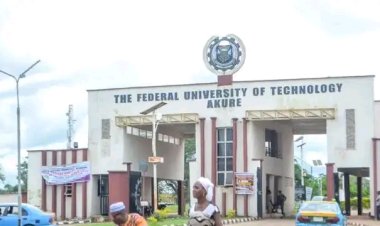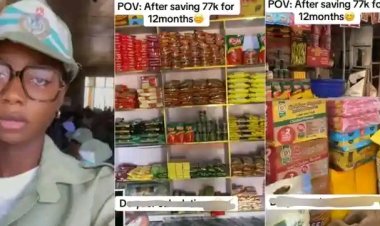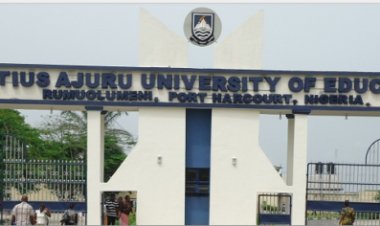Fuel Subsidy Cost Surpasses Education, Other Sectors Budget -UNILORIN VC
Vice-Chancellor of the University of Ilorin (UNILORIN) Prof. Wahab Egbewole, has stated that the budget Nigeria allocated to fuel subsidies from January 2020 to June 2022 exceeded the funds set aside for defence, education, and healthcare. Egbewole also noted that from 2006 to 2018, approximately N10 trillion was expended on fuel subsidies, a situation he characterized as a substantial financial burden on the government.

The Vice-Chancellor of the University of Ilorin (UNILORIN) Prof. Wahab Egbewole, has stated that the budget Nigeria allocated to fuel subsidies from January 2020 to June 2022 exceeded the funds set aside for defence, education, and healthcare.
As a Senior Advocate of Nigeria, Egbewole also noted that from 2006 to 2018, approximately N10 trillion was expended on fuel subsidies, a situation he characterized as a substantial financial burden on the government. He added that only those with an education grasp the implications of its removal.
RECOMMENDED: UNILORIN appoints 16 New Professors
He made these remarks at a programme held at the University of Abuja by the El-mavericky Centre for Educational Research and Development, in honour of the institution’s former Vice Chancellor, Prof. Abdul-Rasheed Na’Allah.
He argued that “Economically, the removal of fuel subsidies should result in fiscal savings for the government, freeing up resources that could be redirected to priority sectors such as education, infrastructure, and healthcare.”
He pointed out that “For example, the N3.92 trillion assigned to petrol subsidies between January 2020 and June 2022 exceeded the combined federal budgets for healthcare, education, and defence over the same 30-month period.”
He suggested that “If that subsidy were eliminated, it could have a significant impact on key sectors, provided the funds were used appropriately. Between 2006 and 2018, about N10 trillion was spent on fuel subsidies, a significant drain on the government’s finances.”
SEE ALSO: Affiliation: UNILORIN and OSPOLY Sign MoU for Degree Programs
Speaking on the theme of the programme, “A march to the future: addressing issues of university administration in post-subsidy Nigeria”, he acknowledged that the general public, who are primarily concerned with prices, would hold the government responsible for any hardships they experience.
The context of post-subsidy removal is one of increased economic reality, social concerns, and political sensitivity.”, he added.

 c.Blessing
c.Blessing 



